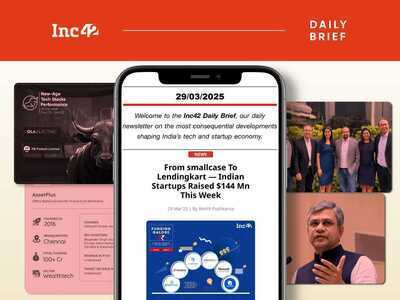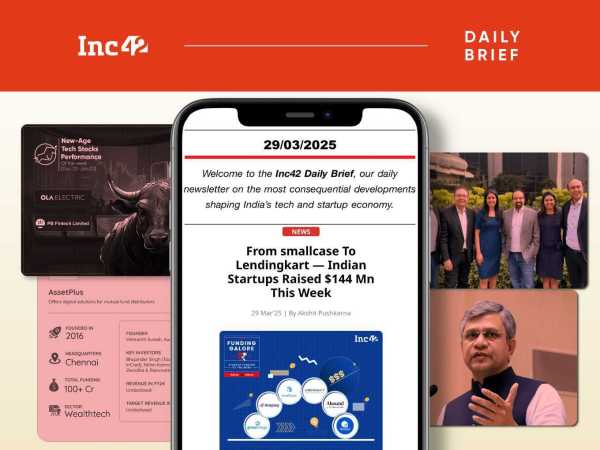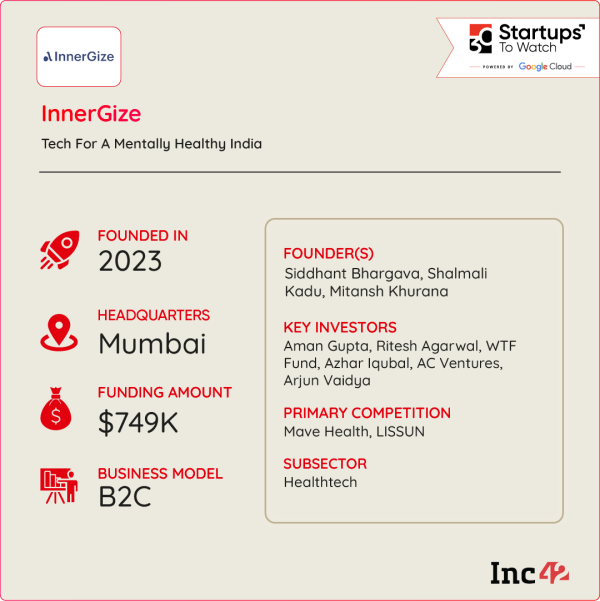
 PlanetSpark Charts A Path To Profitability
PlanetSpark Charts A Path To Profitability
While most Indian edtech startups have been stuck in a spiral of layoffs and shutdowns, Binny Bansal-backed PlanetSpark is scripting a rare turnaround story. Focussed on teaching communication skills to kids and professionals, the startup claims to have turned cash flow positive in FY25.
How Did It Get Here? The startup doubled down on cost-cutting across the business and leaned on organic growth through an in-house content studio and customer referrals. But the real game-changer was AI — powering personalisation, automated scoring, and smarter content delivery. This helped it cut loss by 70% to INR 26.6 Cr in FY24 from INR 89.5 Cr in FY23, while revenue surged 60% YoY to INR 67 Cr.
The Data Moat: PlanetSpark is eyeing an INR 10K Cr domestic soft skills market and an INR 20K Cr global opportunity. Over 50% of its learners come from tier II-IV towns, but its real edge lies in an eight-year data moat built from 1 Lakh+ learners. While funding in edtech remains tight and competition is heating up, the startup believes its data-led AI engine could offer a competitive edge in the communication skills space.
PlanetSpark also has its eye on an IPO but profitability (targeted in FY26) and scale are the next milestones. Can it become one of the few edtechs to rewrite the profitability playbook? But before we get there, let’s take a closer look at how the company navigated the tough times and came out stronger.
From The Editor’s Desk: The B2B ecommerce platform’s AI push, in the form of Nexizo, has come at a time when the company is gearing up for a $1 Bn IPO, likely in the second half of 2025. But, what is OfBusiness up to when it comes to AI adoption?
: Indian startups cumulatively bagged $143.7 Mn last week, up 32% from $109.2 Mn raised in the previous week. smallcase and Lendingkart were the most funded startups, raising $50 Mn and $29.5 Mn, respectively.
: Twenty out of the 32 new-age tech companies under Inc42’s coverage lost 0.18% to 19% of their market cap last week. Veefin and EaseMytrip were the biggest losers while Menhood and Paytm were the biggest gainers.
: The Delhi HC has granted a temporary injunction to BharatPe, restricting ‘Bharatpay’ from using its trademark. The HC said that the “Bharatpay” trademark is similar to that of the fintech unicorn, noting that the former also offers financial services.
: The D2C alcobev startup claimed that the price-sensitive nature of the Indian alcoholic beverages market did not align with its vision of building a premium cocktail experience. The IPV-backed startup sold ready-to-drink cocktail drinks.
: The Mumbai-based VC is planning to mark the final close of its $200 Mn second fund by December this year. The investment firm raised an additional $10 Mn-$15 Mn after the first close of the fund at $40 Mn in January.
: The cyber watchdog has advised the public to use anonymous accounts to sign up for AI apps. CERT-In warned that some AI apps could pose threats like data poisoning, adversarial attacks, and model inversion.
: Ankush Grover, founder of the cloud kitchen unicorn, aims to make the company a brand that the world follows. Read what Grover said in a fireside chat moderated by Vaibhav Vardhan, cofounder of Inc42, on usage of tech and scaling plans.
Inc42 Startup Spotlight Can InnerGize Solve India’s Mental Health Woes?Emblematic of India’s mental health crisis, the Economic Survey 2023-24 found that a tenth of adults in the country suffered from mental disorders, with the treatment gap as high as 72% to 92%.
Tackling Mental Health With Tech: Founded in 2023, InnerGize is taking a hardware-first approach to tackling India’s mental health crisis. It has developed a wearable device that stimulates the vagus nerve to help with anxiety, stress, ADHD, migraines, sleep issues, and more. Tested on over 1,000 patients, the device reduces stress by 36% and anxiety by 32% after just a few sessions.
Demand Spurts: At INR 12,400, InnerGize’s wearable isn’t exactly budget-friendly, but it hasn’t slowed the startup. The startup claims to have secured 1,200+ orders for its device, translating into a sum of INR 60 Lakh in pre-sales.
What’s Next? The Aman Gupta-backed startup has already set up a Delhi-based facility with a production capacity of 5,000 units per month. It’s now aiming for $10 Mn in ARR and plans to roll out an upgraded version of its device with galvanic skin response tech for real-time stress tracking.
InnerGize may have built an innovative product, but in a country where mental health remains taboo and affordability is key,

The post appeared first on .